
The presenters for various categories were asked to read a winner, "for this rehearsal only."
Rehearsals for the Oscars telecast are not just for the famous faces presenting the awards and performing on the stage. They are also for the hundreds of crew members who need to learn every beat possible within the show.
That means, in part, that whenever an envelope was opened in rehearsal, an actual winner from among the nominees also had to be announced. To avoid any potential confusion or awkwardness, presenters were asked to say "for this rehearsal only" when announcing a winner — as in, "And the Oscar goes to, for this rehearsal only: Foxcatcher" (in this case, for Best Makeup and Hairstyling).
This allowed films that didn't ultimately win their categories to at least fake win them, like Interstellar for Best Sound Mixing, Unbroken for Sound Editing, The Boxtrolls for Best Animated Feature, and Emma Stone for Best Supporting Actress. (More on this in a bit.)
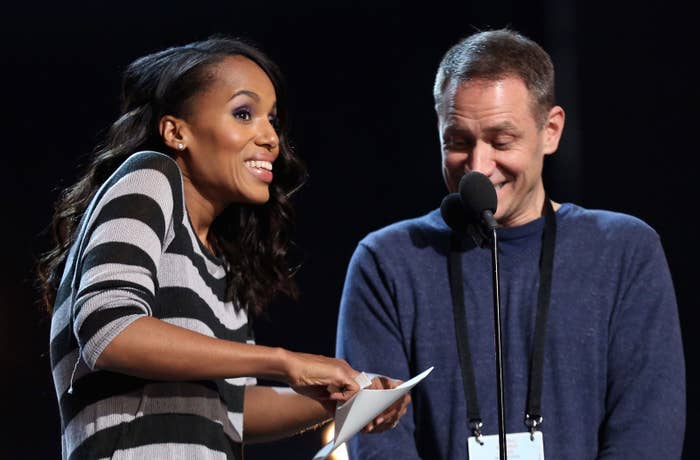
Some of the presenters, however, did not appear to be aware of this setup during rehearsals, and thought they were actually learning the winners in advance. Eddie Murphy mumbled nonsense when first announcing the fake winner for Best Original Screenplay. Benedict Cumberbatch first said "Flim flam flimmery!" as the winner for Best Editing, and then said it was Bradley Weinstein — a (kind of) made-up name. Jared Leto announced Shirley MacLaine as the winner for Best Supporting Actress. And Felicity Jones was halfway through announcing The Grand Budapest Hotel for Best Production Design before she stopped and asked a stage manager, "Am I allowed to say it? I don't want to give it away!"
In that case, it turned out Jones did announce her category's eventual winner. But each presenter was assured the names inside the envelopes were randomly selected, before they were politely asked to read them.
And that is because…
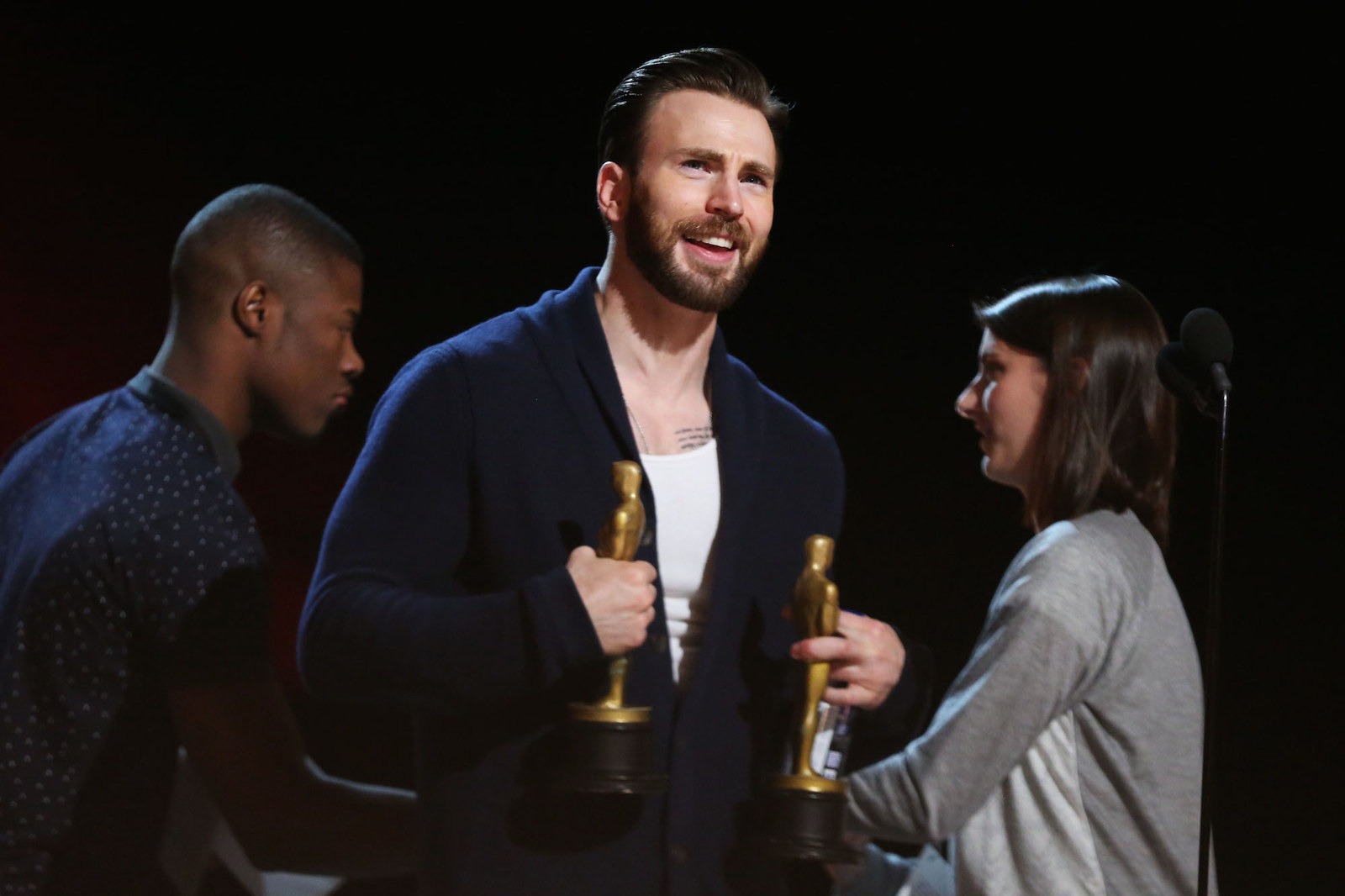
The Academy hired actors to stand in for the winners — and they all gave full acceptance speeches.
After a winner is read, the crew has to work out where every camera has to be to film all of the nominees, as well as following the winner or winners down to the stage, and capture every angle of their acceptance speeches. And so the production hired roughly two dozen actors of varying ages, races, and body types — all of whom are members of the actors guild SAG-AFTRA — to pretend to be the nominees in each category. (Whenever one of the announced presenters couldn't make the rehearsal, these actors stood in as presenters as well.)
A stage manager assigned each of them a nominee to play, and then they sat where those nominees would be on Oscar Sunday. (The seats had giant posters sticking out of them with the faces and names of the celebrities who would be sitting in them.) When a presenter announced a fake winner, the actor actually performed every aspect of how a winner would react. They cheered and hugged people sitting near them, and then walked down the aisles, sometimes beaming with excitement or overwhelmed with shock.
When they got to the stage, that's when things got a little…odd. Because each stand-in was expected to give a speech that runs roughly the duration of the allotted time for each winner. So they did, and they performed it as if it was real. They took a stand-in Oscar made of wood from the presenter — sometimes with a congratulatory hug or kiss — and then stepped to the mic and gave a speech filled with exactly the same kind of effusive expressions of gratitude to their loved ones and team, and acknowledgment of their movie's "journey," as you'd expect from any Oscar winner.
This should not be surprising — these are professional actors, and so they are professionally acting! — but the effect was delightfully strange. One of the fake winners for Feature Documentary Finding Vivian Maier started her speech by saying, "We found her!" The second fake winner added, "We found Oscar, that's for sure!" When Kerry Washington gave a fake winner a peck on the cheek, he opened his speech by exclaiming, "Wow, I just got kissed by Olivia Pope!" (Washington, a veteran presenter at the Oscars, just smiled faintly and stared into the middle distance.) And when the actor playing fake Best Supporting Actress winner Emma Stone took to the stage, she began to tear up and found herself, convincingly, at a loss for words.
After she was done and came back into the audience, another fellow actor, who had been playing fellow nominee Laura Dern, congratulated her performance: "Good job, Renee! I was giving you sour-loser face!"
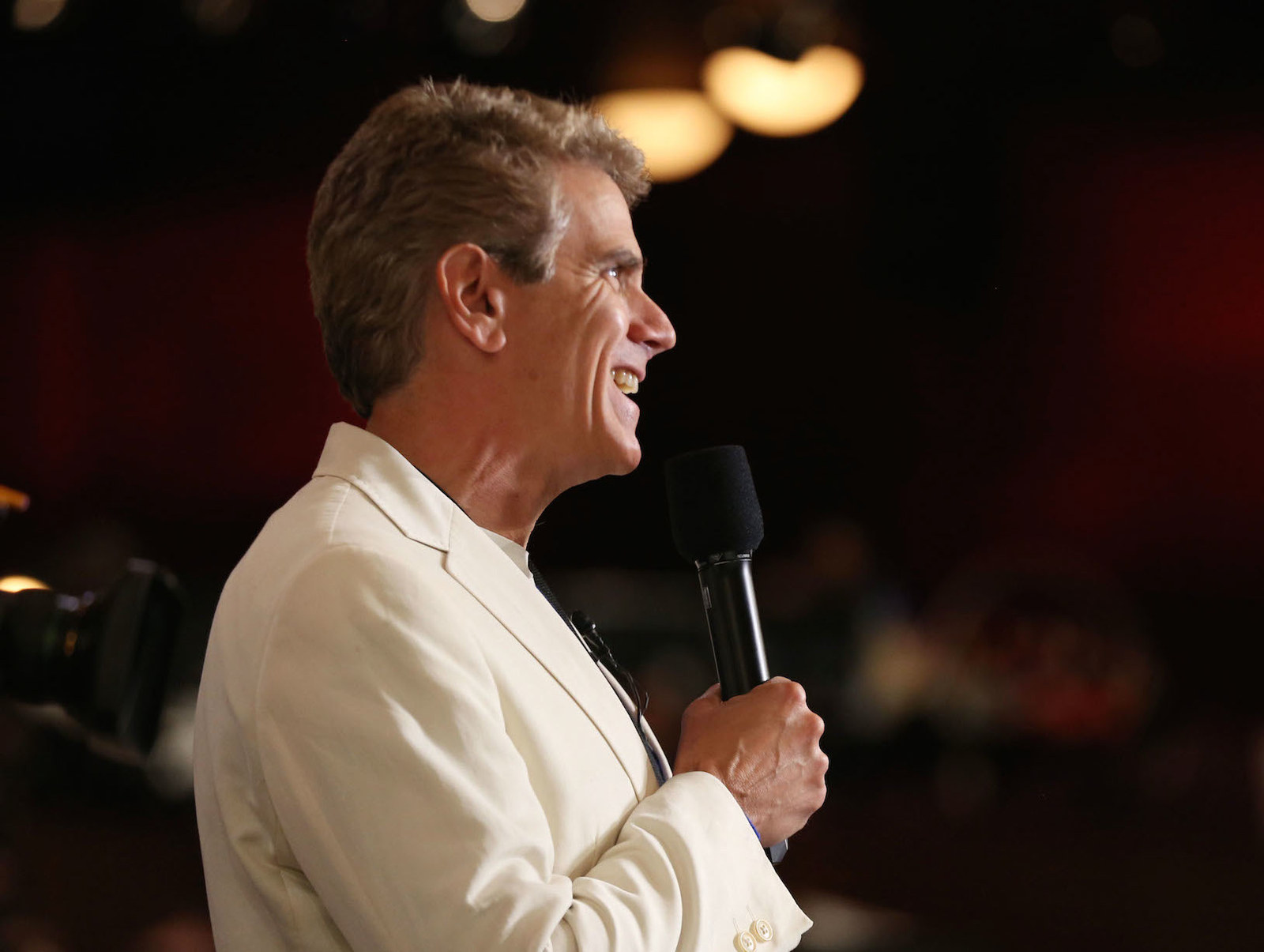
And there was a stand-in for host Neil Patrick Harris too.
All of the stand-in actors rotate their assignments, except for one: Actor Lawrence Toffler, who stood in — or "faux-sted" — as Harris throughout the rehearsals. This meant reading much of Harris' host copy and hitting his marks for the cameras. But the stage managers also encouraged Toffler to ad-lib much like any awards show host would during the broadcast. So he did. And sometimes his jokes were actually good!
"I don't want to say the show is running long," he said presciently at one point, "but the bags under my eyes are no longer carry-on."
While introducing the presenter for Best Supporting Actress, Toffler said, "And now last year's winner for Best Supporting Actor and my rabbi, Jared Leto."
They couldn't all be gems, however. After the presentation of Best Picture nominee The Imitation Game, Toffler verbally mixed up the film with The Crying Game. The crew groaned. And like a true host, Toffler just shrugged and moved on.
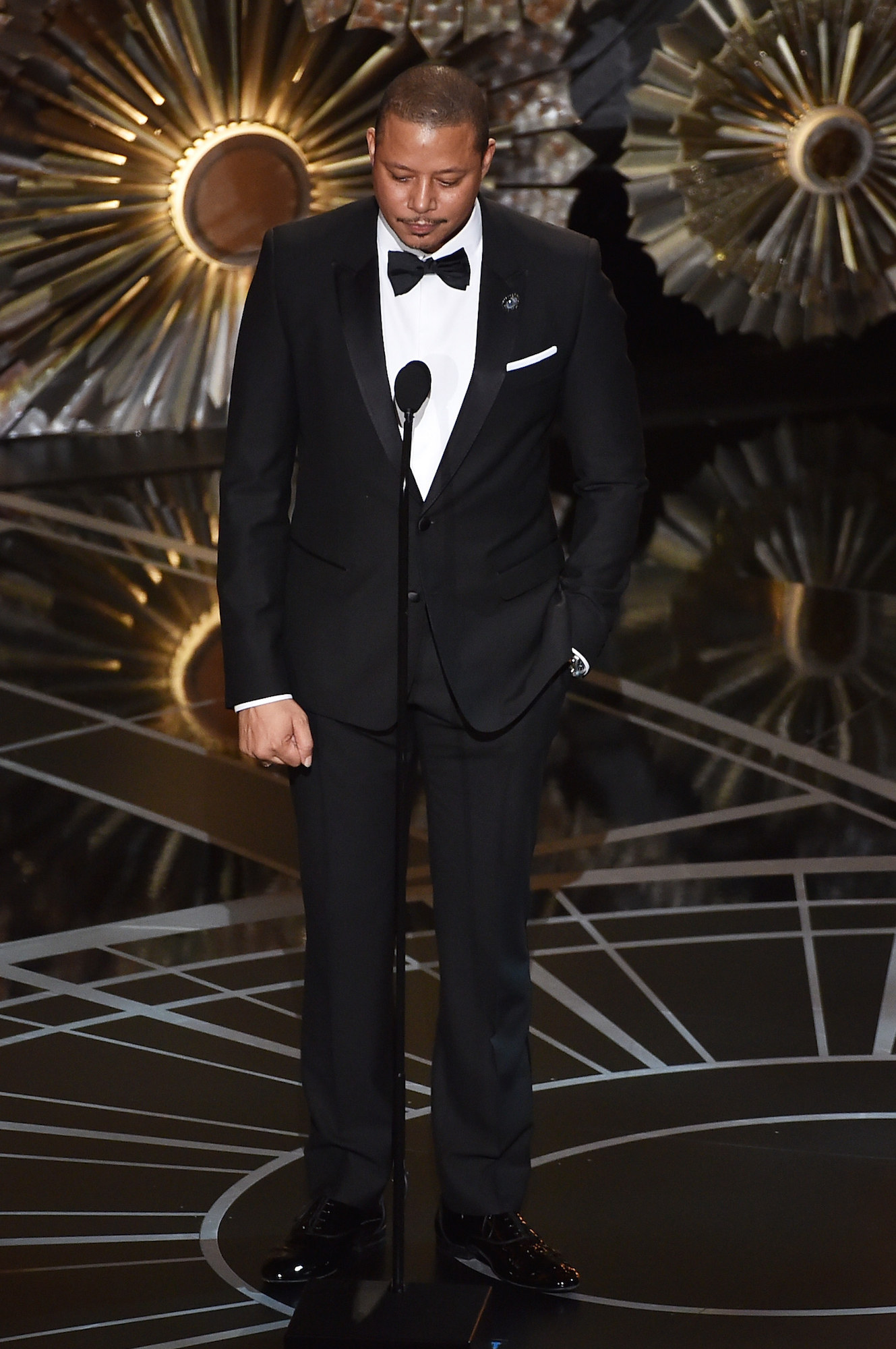
Some presenter speeches were easier than others — just ask Terrence Howard.
You likely noticed that Terrence Howard had a hard time during the telecast presenting the clip package for Best Picture nominees Whiplash, The Imitation Game, and Selma. The Empire star had just as difficult a time getting through rehearsals for his segment as well.
On Saturday afternoon, Howard arrived at the Dolby to run through his presentation copy, and halfway through, he briefly tripped over his lines. "So glad we're doing this," he said with a smile, before yelling "Take two!" as he walked back into the wings. The second time through, Howard tripped over the last part of his copy for The Imitation Game, and before launching into his copy for Selma, he said, "We're going to do that one more time." At the end of that take, he explained that he was flummoxed: "It was the beauty of looking over the audience and seeing people watching me."
After he had to break his fourth attempt at the copy, Howard briefly looked skyward in frustration. Throughout rehearsal, he had barely glanced at the teleprompter, and his behavior was as if he was struggling to remember lines he had memorized. A stage manager asked Howard if he could see the prompter. "I see it, I see it," Howard said in exasperation. "I've been on vacation for a while."
After his fifth attempt, which was close but not quite perfect, Howard decided he was done and walked offstage with a smile, waving to the scattered crowd in the audience. "Have a great night!"
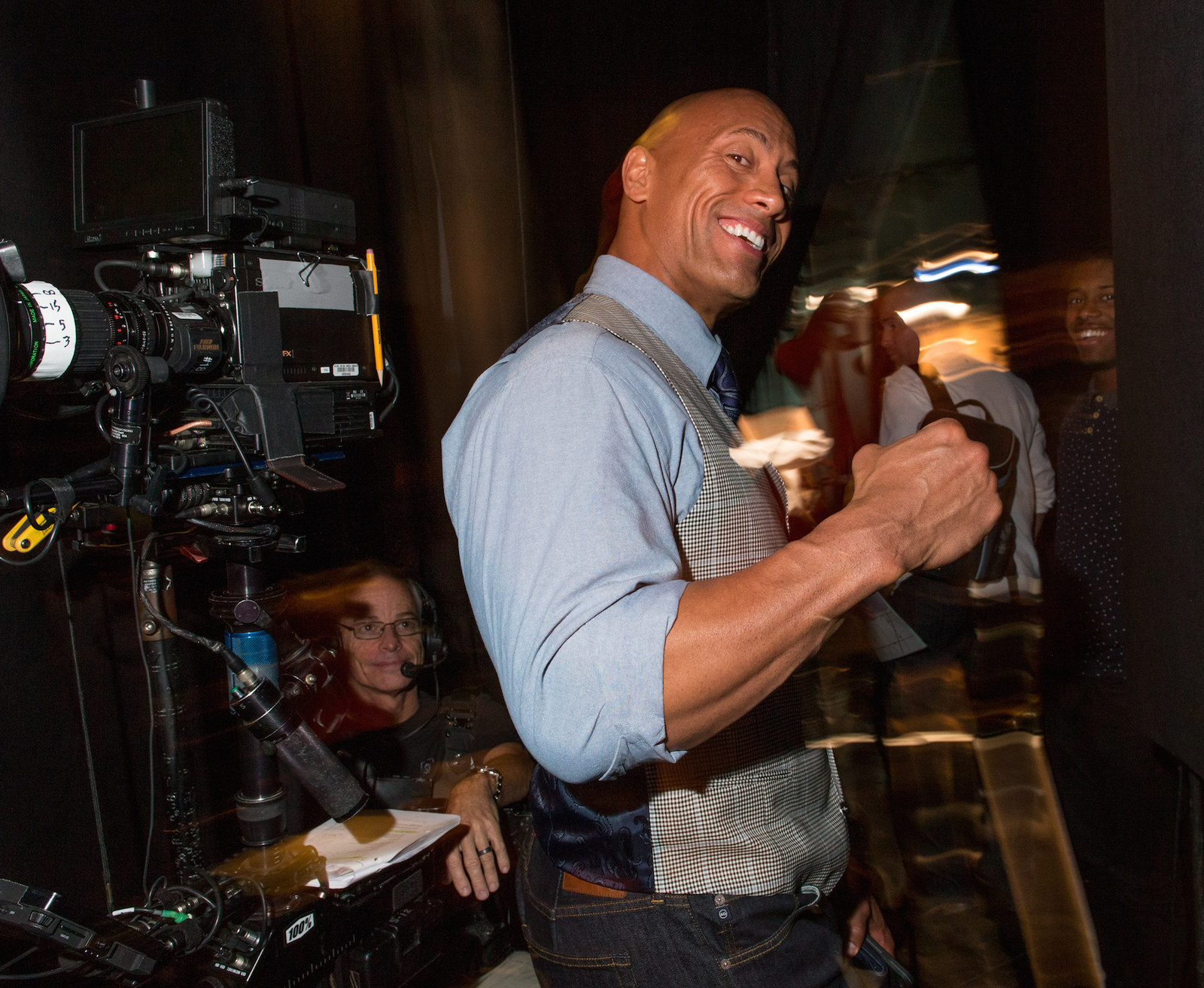
Benedict Cumberbatch also struggled with the teleprompter. The Rock did not.
For their presentation of Best Film Editing, Benedict Cumberbatch and Naomi Watts first ran through their copy by reading it from the main teleprompter on a big screen at the back of the theater. For their second take, a stage manager asked them to try reading from a much smaller teleprompter mounted on the top of a Steadicam.
"In that one?" Cumberbatch said. "Do the whole thing in that one? Hell’s bells."
The voice of the telecast's director, Hamish Hamilton, boomed over the loudspeakers: "You can do it, Benedict!"
After giving the Steadicam a good college try, however, Cumberbatch and Watts huddled with a stage manager expressing their concern that they would look strange trying to squint to read their copy from the small screen. Finally, to resolve things, Watts asked, "What's the better shot?" For their third go-round, the pair was back to the main prompter, as they were during the actual telecast.
The producers weren't going to give up on getting a shot of the presenters using a Steadicam, however. For Zoe Saldana and Dwayne Johnson's rehearsal for Best Animated Feature, they were asked at the outset to use it.
"But he's not going to move, right?" asked Johnson, indicating the camera operator.
"It might… float," said the stage manager.
"It better not move," Johnson said, to much laughter from the crew. He indicated Saldana. "She'll kick your ass."
The Steadicam did not, in fact, move.
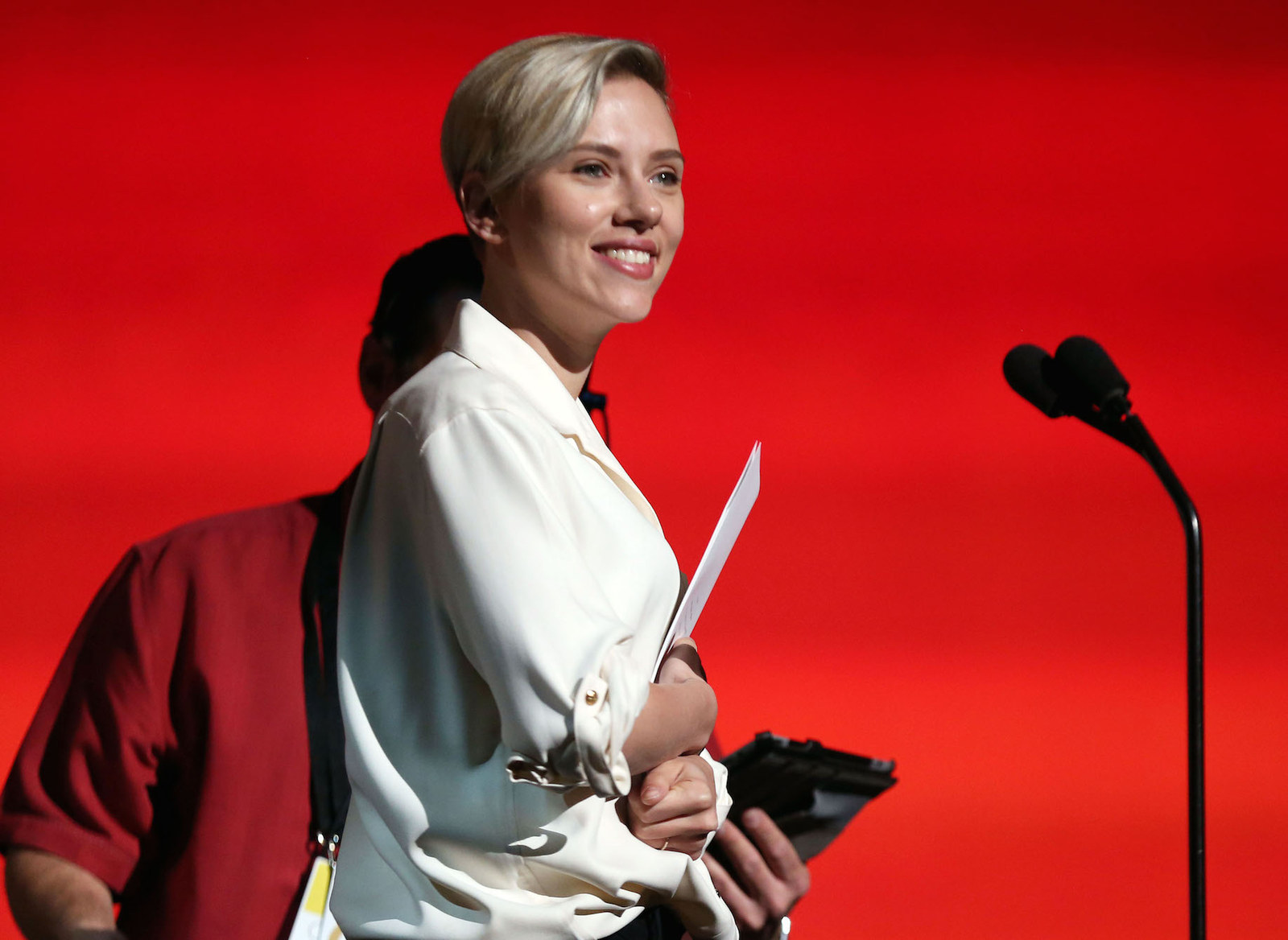
The first-time presenters have much more fun. Mostly.
In general, you could tell if an actor had not presented at the Oscars before by how businesslike they were during their rehearsal. Veterans like Nicole Kidman and Liam Neeson breezed through their material with barely a hiccup and were gone as quickly as they had arrived. Scarlett Johansson did hers in a single, smooth take; at the end, Hamilton exclaimed, "Wow, that was fantastic, thank you very much!"
First-timer Chris Pratt, meanwhile, stepped onto the stage with a flourish, vamping and dancing as he walked to the mic with Felicity Jones. For their second attempt, Pratt pointed at the audience, as if someone was actually there. And Miles Teller similarly worked out his nervous energy by jokingly pointing at various seats in the audience, and saying, "What's up Oprah, Meryl, J.K."
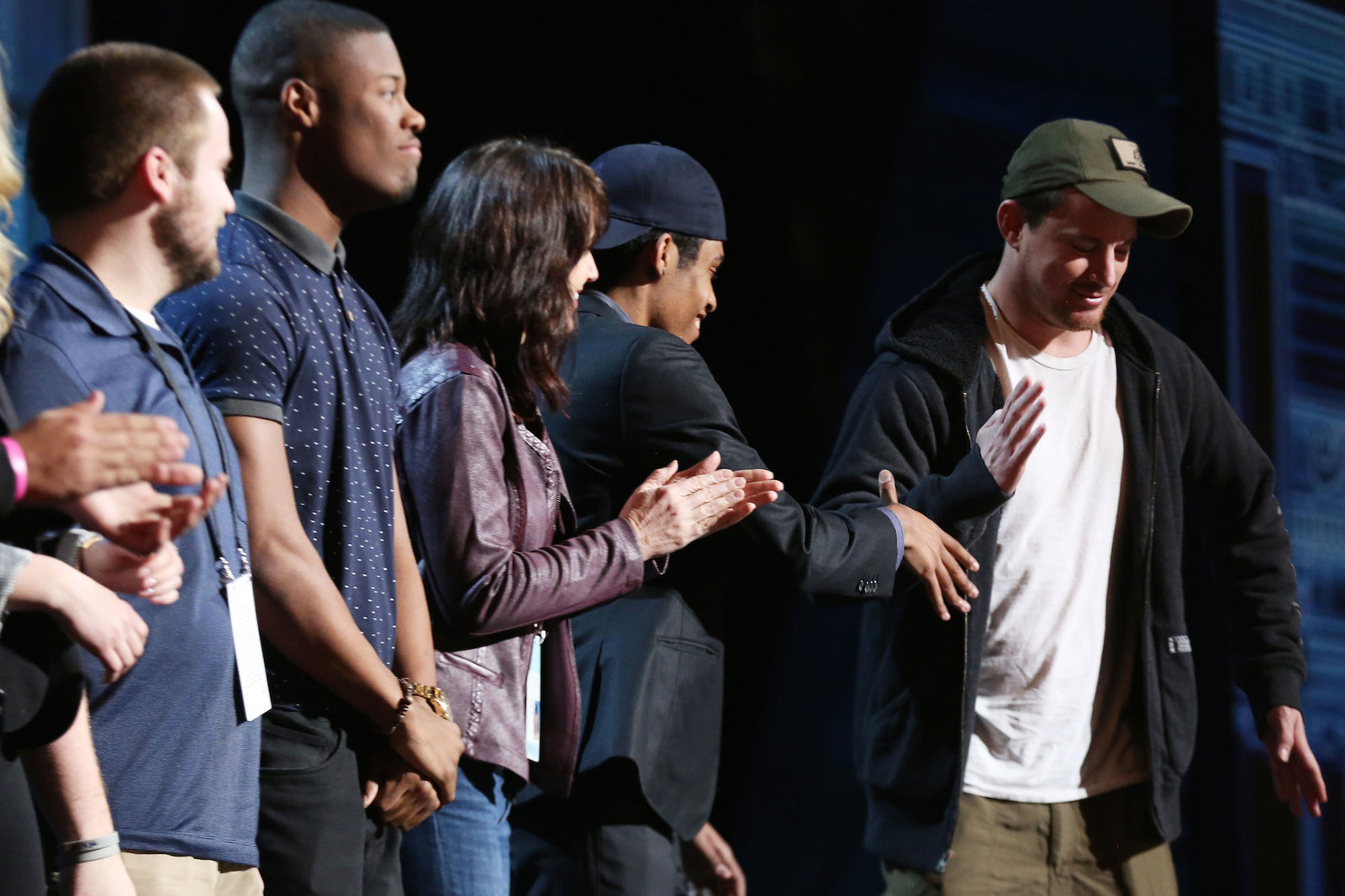
Sometimes repeat presenters did have some fun with their rehearsal experience, however. When shown his mark on the stage — a small star on the floor — Channing Tatum, making his third appearance on the Oscars, asked the stage manager, “Foot on the star, or third leg on the star?” Later, he regaled the winners of the Team Oscar competition — young filmmakers who brought out the Oscar statues to the stage — with the story of his first time there, when he danced with Charlize Theron at the 84th Oscars, hosted by Seth MacFarlane. “As soon as it was over,” he said, “I just started drinking.”
Returning presenter Jason Bateman, meanwhile, brought his young daughter Francesca with him for his walk-through of the segment for Live-Action Short and Best Documentary Short. She watched him sitting front-row center, with a huge smile on her face.
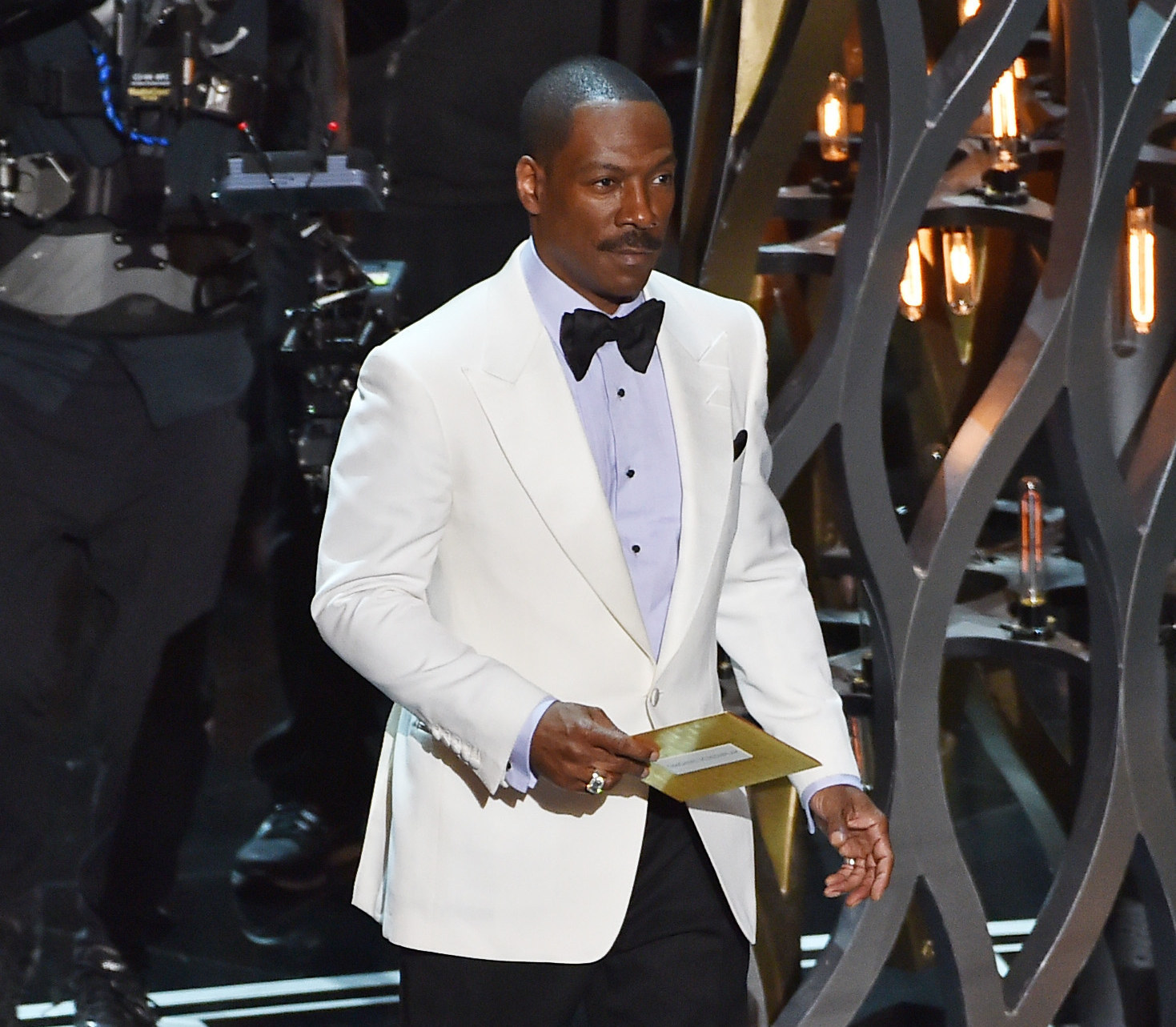
Eddie Murphy did not like his intro music.
As he was escorted to the stage, a loose and easygoing Eddie Murphy affected his best Snagglepuss imitation. “Heavens to Murgatroyd!” he exclaimed. “Exit stage left!” (He was actually stage right, but who cares?)
Onstage, Murphy delivered his copy for Best Original Screenplay with zero issues, and gamely agreed to go through the process twice so the crew could perfect a complicated camera move following him out onto the stage. The second time through, Murphy noticed that the music playing him on was an instrumental version of James Brown’s “I Feel Good” — a not-that-subtle reference to Murphy’s Oscar-nominated performance from Dreamgirls as a character not unlike Brown.
When Murphy had finished his second run-through, he paused and looked out at the audience.
"Why are y'all using James Brown music for me?!” he said with mock outrage. “Play 'Party All the Time'!"

